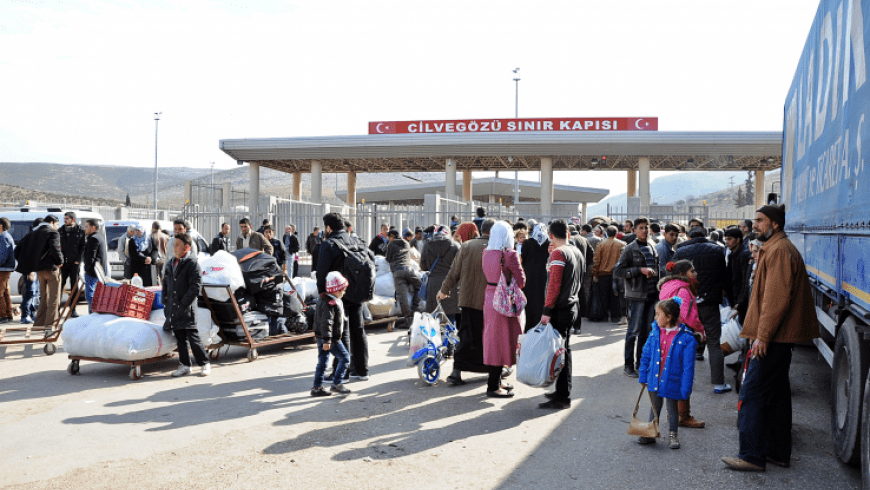Hardly a day passes without the deportation of Syrian youths from Turkey to Syrian territory in the north of the country. The deportations happen through border crossings, most notably the Bab al-Hawa crossings in the northern countryside of Idlib, Bab al-Salama north of Aleppo, and Tal Abyad in the northern countryside of Raqqa governorate.
Deportations from Turkey to northern Syria began to take an escalating trend at the beginning of 2022, and their frequency increased after the middle of the year, specifically in August and September. This has affected thousands of Syrians who suddenly found themselves outside Turkish territory, despite the fact that they hold temporary protection documents and regular travel permits, which means that there is no legal violation committed on their side.
Number of Syrians deported from Turkey in 2022
The Turkish authorities deport Syrians to their country after arresting them in various Turkish states and forcing them to sign papers for “voluntary” return. Deportations are mainly carried out through the Bab al-Hawa, Bab al-Salama, and Tal Abyad crossings.
These crossings publish monthly statistics on the number of returnees and deportees from Turkey. According to what was monitored by the Syria TV website, the number of Syrians who were deported from Turkey to Syria through the Bab al-Hawa and Bab al-Salama crossings reached more than 33,000 people from the beginning of 2022 until the end of November.
According to informed sources, the Turkish authorities have asked the management of crossings run by the Interim Syrian Government, such as Bab al-Salama and Tal Abyad, not to mention the name “deportation” or forced returnees in the monthly statistics and instead to use it as “voluntary return.”
Daily migrations
Deportations from Turkey to Syria through the Bab al-Salama crossing north of Aleppo and other crossings have become commonplace without any reaction from institutions representing Syrians in Turkey, such as the interim government or the Syrian National Coalition.
Local sources told Syria TV that the busses carrying deportees from Turkey arrive every two or three days at the Bab al-Salama crossing, and the deportees end up in the garage of the town of Sajo, north of the city of Azaz.
The sources added that the people suffer from great difficulties in finding shelter, especially since most of them do not have relatives or acquaintances in the area. This pushes some of them to later head towards areas controlled by the Syrian regime or the Syrian Democratic Forces (SDF).
For his part, a local source in the Tal Abyad area in the northern countryside of Raqqa told the Syria TV website that the number of deportees from Turkey to the city of Tal Abyad is about 20 to 25 people per day amid a media blackout.
The source pointed out that deportations are not limited to young men but include women and children, and sometimes deportee busses include doctors or teachers. The source stressed that 11-year-old children were deported without any of their relatives accompanying them.
Forced Return Contrary to Treaties and International Law
In October, Human Rights Watch said that “Turkey is obligated under treaties and customary international law to respect the principle of nonrefoulement, which prohibits the return of anyone to a place where they would face a real risk of persecution, torture or other ill-treatment or threat to life.”
The organization called on Turkey not to force people to return to places where they face serious harm. It called for the protection of the basic rights of all Syrians, regardless of where they are registered, and not to deport refugees living and working in a city other than the one where their identities and temporary protection addresses are registered.
This article was translated and edited by The Syrian Observer. The Syrian Observer has not verified the content of this story. Responsibility for the information and views set out in this article lies entirely with the author.


